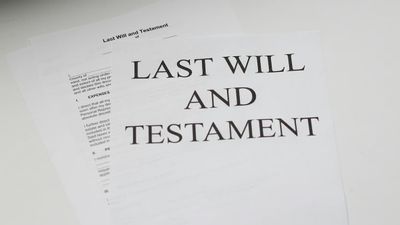Successor Trustee vs Executor: Key Differences Explained
Settling an estate can be confusing. Many people wonder about the difference between a successor trustee and an executor. Both roles are crucial in estate administration, but they function differently. This article clarifies the distinctions between a successor trustee and an executor, outlining their respective duties and when they come into play.
Successor Trustee vs Executor: Understanding the Roles
A successor trustee and an executor, both acting as fiduciaries, manage and distribute assets. Their authority originates from different sources and follows separate legal processes.
Understanding these distinctions is vital for effective estate administration. The roles have different implications for how an estate is managed.
What is a Successor Trustee?
A successor trustee takes over when the original trustee of a living trust is unable to serve. This could be due to death or incapacitation. Trusts manage assets for beneficiaries outside of probate, which can include life insurance proceeds and investment accounts. Trusts are a powerful estate planning tool.
The grantor, also known as the settlor or trustor, names the initial trustee (often themselves) and their successor trustee when creating a trust. This ensures continuous asset management. It’s like passing the baton in a relay race.

What is an Executor?
An executor is named in a Will and serves as a fiduciary to manage the estate according to the deceased's wishes. This role begins after the will-maker's death.
The executor manages assets not held within a living trust. They guide these assets through the probate process in Court. Unlike a successor trustee who might serve for years, an executor's role is usually short-term, focused on estate settlement.
Responsibilities include inventorying property, filing the deceased’s tax returns, paying debts and bills, notifying beneficiaries and other stakeholders, and settling the estate’s final expenses. The Court typically confirms the executor named in the will.
Successor Trustee vs Executor: Key Differences
Both roles involve asset management and distribution, but key differences exist.
The table below summarizes these distinctions:
Successor Trustee | Executor | |
Source of Authority | Trust Document | Will |
Activation | After Original Trustee's Death or Incapacity | After Death of the Will-Maker |
Court Oversight | Generally Not Required | May Be Required (Probate Court, if applicable) |
Duration | Long-Term, as Defined by the Trust | Short-Term |
While probate can sometimes be necessary, it is not always required. A trustee manages trust assets according to the trust document, while an executor handles assets governed by a will, which may or may not go through probate. Factors such as asset titling, beneficiary designations, and estate size influence whether probate is needed.
A successor trustee might oversee trust assets for an extended period based on the trust’s terms. Executors, on the other hand, are responsible for managing and distributing probate assets as directed by the will. If assets were not properly transferred into a trust, an 850 Petition might be necessary to clarify ownership and ensure proper distribution.
Executors must carefully navigate these legal processes, ensuring their actions align with the will and applicable laws. Consulting a qualified estate planning attorney is recommended, especially with the April 1, 2025 changes due to AB 2016.
FAQs: Successor Trustee vs Executor
Is a successor trustee the same as an executor?
No. A successor trustee manages a trust. An executor manages a Will.
They have different legal responsibilities and operate under distinct Court procedures. Understanding the difference between a Will and a trust can help clarify this further.
How much power does a successor trustee have?
A successor trustee’s power is defined by the trust document. It can vary widely depending on how the grantor structures the trust and distributes the property management duties.
It is important to have clear instructions laid out in the trust to address specific financial affairs.
Is a trustee more powerful than an executor?
Neither role is more powerful. Trustees manage trust assets with less Court oversight. Executors work under probate Court supervision, focusing on property within the probate estate. The legal authority of each role is determined by its respective document (trust or Will). Both must work within their defined roles. Consulting an expert on these matters is important if questions arise.
Can successor trustees also be beneficiaries?
Yes, a successor trustee can also be a beneficiary. Many grantors name someone as both trustee and beneficiary, especially when the beneficiary will inherit the estate's assets. This person may already be involved in trust management during the grantor's lifetime. You can contact credit card companies and other account holders regarding updated contact information as necessary after the administrative duties are carried out.
What happens if a successor trustee or executor cannot fulfill their duties?
If a successor trustee or executor is unable or unwilling to fulfill their duties, the trust or Will typically outlines a procedure for appointing an alternate. This could involve naming a secondary successor trustee or executor in the document itself. If no alternate is named, the Court may step in to appoint someone. It's crucial to have a well-drafted estate plan that anticipates such scenarios to ensure a smooth transition and continued management of the estate.
How are successor trustees and executors compensated for their work?
Successor trustees and executors are generally entitled to reasonable compensation for their services, which can be outlined in the trust or Will. This compensation is often based on the complexity of the estate and the amount of time and effort required to manage it. State laws may also dictate compensation standards. It's important for trustees and executors to keep detailed records of their activities and expenses to justify their compensation, ensuring transparency and fairness in the estate's administration.
Conclusion
Understanding the differences between a successor trustee and an executor is important for estate planning and administration. Both manage and distribute assets, but their legal basis, timelines, and Court involvement differ significantly. Keeping your estate plan current is important, ensuring the right people are named in your legal documents. Consider talking to an estate planning attorney or a personal representative to have a better understanding of your death certificate and how it pertains to an estate's assets, among other things.
For legal advice specific to California, consult with a trusted advisor to ensure compliance with all state guidelines. They can also provide insights and support for beneficiaries distributing remaining assets after any outstanding debt and final expenses have been paid from estate accounts. This will make for a less daunting experience in paying bills, managing financial affairs, filing tax returns, and any ongoing requirements according to terms set forth by the trust or through Court approval for a probate estate.



